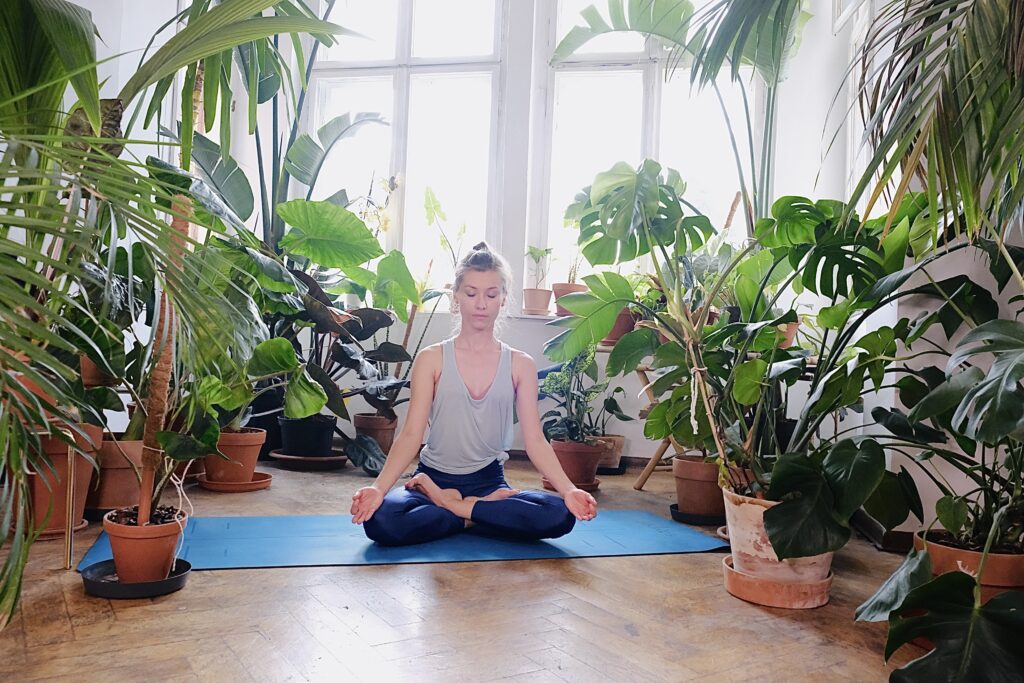
Why You Should Practice Meditation Everyday?
Most probably, you’ve heard that you should practice meditation every day. Why so? This activity gives you so many benefits for both the body, mind, and spirit. For me, meditation is one of the aspects of self-love; thanks to it, you can get to know yourself better. Through the practice of everyday meditation, I found who I am and had the opportunity to heal emotionally on a deep level. Today I will write about just 5 scientific pieces of evidence you need to know to get started!
In the beginning, Meditation works at every level – it calms the mind and relaxes the body, allowing you to find balance. The definition of Meditation stands for: “practice of training the mind or entering an altered state of consciousness in order to obtain some beneficial effect or for the mind to acknowledge the content of the altered state without identifying with it, or as an end in itself.”
Meditation offers numerous benefits, and its positive effects on the body, mind, and spirit are well-documented. Here are five pieces of scientific evidence that highlight the importance of incorporating meditation into your daily routine:
Meditation Reduces Stress and Anxiety:
- Numerous studies have shown that meditation can significantly reduce stress levels. One study found that mindfulness meditation reduces the production of cortisol, the stress hormone . By focusing on the present moment, meditation helps break the cycle of anxious thoughts that can fuel stress.
Meditation Every Day Enhances Emotional Health:
- Meditation has been linked to improved emotional health and well-being. Research indicates that regular meditation practice can increase positive feelings and reduce symptoms of depression and anxiety . This is partly due to meditation’s ability to foster a greater sense of self-awareness and self-acceptance.
It Can Improves Attention and Concentration:
- Meditation strengthens your attention span and improves your ability to concentrate. A study published in Psychological Science found that just a couple of weeks of meditation training helped participants perform better on tasks that require focus and memory recall . This is particularly beneficial in our multitasking world where distractions are constant.
Meditation Promotes Physical Health:
- Meditation can also have a positive impact on your physical health. For example, a study in the Journal of the American Medical Association (JAMA) showed that meditation can lower blood pressure, which reduces the risk of heart disease . Additionally, meditation has been found to boost the immune system, helping the body fight off illnesses more effectively.
Meditation every Day Enhances Self-Awareness:
- Through meditation, individuals can develop a better understanding of themselves and their thought patterns. This heightened self-awareness can lead to personal growth and a deeper connection to oneself. Studies have shown that meditation can increase mindfulness, which helps people gain insight into their thoughts and behaviors, leading to positive changes in their lives .
Incorporating meditation into your daily routine can provide profound benefits that enhance your overall quality of life. Whether you seek to reduce stress, improve emotional health, or deepen your self-awareness, meditation is a powerful tool that can help you achieve these goals.
To sum up – you should give Meditation a try! If you are not sure if it’s for you this summer I will teach Meditation on YouTube for FREE! Check my Youtube channel to be always up-to-date with news, Yoga classes, Meditation practices and my newest video Podcasts – all to make your life better and easier.
Namaste. Paulina
_______
Sources:
- https://www.ncbi.nlm.nih.gov/pmc/articles/PMC3620330/
- https://pubmed.ncbi.nlm.nih.gov/23541163/
- https://www.ncbi.nlm.nih.gov/pmc/articles/PMC5430433/
- https://journals.sagepub.com/doi/abs/10.1177/0956797616673867
- https://jamanetwork.com/journals/jamainternalmedicine/fullarticle/2269236
- https://www.ncbi.nlm.nih.gov/pmc/articles/PMC3004979/